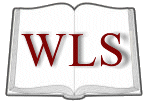Linguists at the sharp end
It's not every day that an interpreter or translator is plunged into a real life-or-death drama. This book, which examines the ubiquity and importance of interpreting and translation in everyday life, opens with author Kelly being awoken in the middle of the night by an emergency services dispatcher who needs an interpreter. Urgently.
At the other end of the phone a terrified woman whispers: ‘Me va a matar!’ (‘He [or she] is going to kill me!’).
The caller, still whispering in Spanish, adds that she’s hiding under a bed while a gunman ransacks her apartment in search of her.
Gripping stuff in any language! It is also a vivid illustration of how varied — and unexpected — events can be during the working day of an interpreter.
Unlike some of the language books reviewed on this site, Found in Translation does not attempt to be scholarly in the linguistic sense, though it makes many important points about the profession.
Rather, it sets out to demonstrate, for the benefit of the public at large, the importance of translation in our everyday lives – even if translators remain a largely ‘invisible’ and therefore undervalued profession. Indeed, the authors describe translation and interpretation as 'the biggest industry you never knew existed’.
Indicative of the book’s target market is the fact that the word ‘translator’ is used inclusively to include professionals who work with the written word as well as those who inhabit the rarefied realm of the verbal discipline.
Authors Kelly and Zetzsche – both highly regarded in the field of linguistics – make their point through a series of exemplary anecdotes revolving around translators and interpreters at work from day to day.
The book’s dramatic opening scene vividly demonstrates how interpreters have to think on their feet. By contrast, translators have the luxury of time to consult myriad dictionaries and to dwell on the subtleties of meaning before plumping for a final version in the target language.
This is probably just as well, considering that it is translators who ultimately decide on the wording – and therefore the accepted meaning – of international peace treaties, pan-European economic agreements and other documents that shape our lives.
Found in Translation covers almost every spectrum of human endeavour in which translation plays a key role, from fashion to Facebook, from journalism to justice and from politics to the porn industry.
Using extracts from interviews with translators and interpreters, the authors provide an up close and personal account of the demands and stresses with which these professionals grapple as part of a normal day at the office.
The book also offers fascinating insights into the future direction of translation and interpreting. Language professionals know that the day when their work can be flawlessly performed by software is still somewhere beyond the horizon. If further reassurance were needed, they might find it in the words of Google translation specialist Franz Och, who concedes that computerised translation will only be able to match the standards achieved by humans in ‘50 or in 500 years’.
For the non-linguist readers of this book, it should ensure that they never again have to ask: ‘Ah, a translator! But what exactly do you do?’
Found in Translation: How Language Shapes Our Lives and Transforms the World by Nataly Kelly and Jost Zetzsche is published by Perigee/Penguin USA, and is available at bookstores and through Amazon.com.
ISBN: 978-0399537974 (paperback) 039953797X (Kindle version). 288 pages.
Reviewer: Cliff Hutton
Back to top

